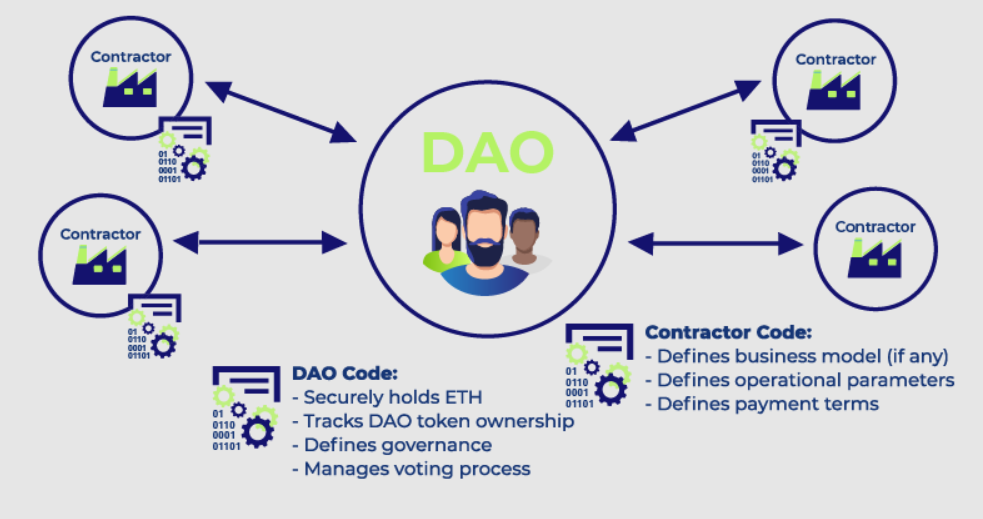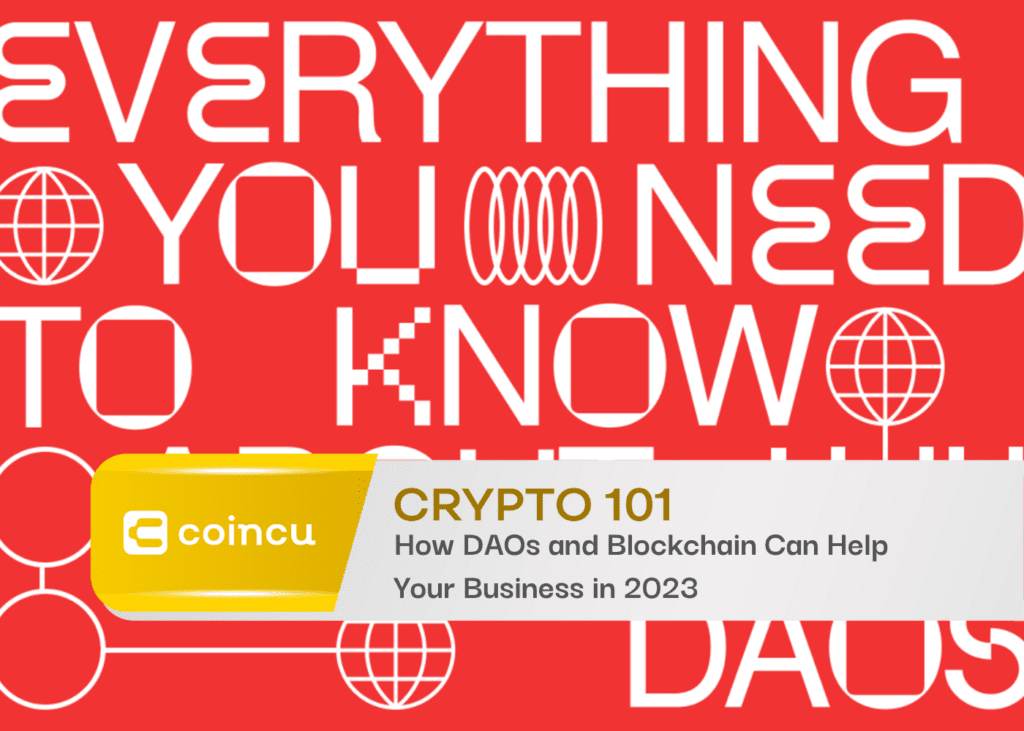It’s impressive to see how far businesses have come since bitcoin’s introduction approximately ten years ago. Before bitcoin, the fintech industry was characterized by its reliance on banks as reliable third parties who protected the security and fungibility of our money, albeit at a slow and expensive pace. Decentralized technology has shown that rather than through intermediaries like banks, such as governments, different entities’ interests can be cooperatively aligned in a single system.
Smart contracts are used to regulate Decentralized Autonomous Organizations (DAOs). A DAO can be transparent and immutable because all transactions are recorded and cannot be changed. DAOs have the potential to completely change how businesses are managed. They could increase the effectiveness and transparency of organizations.

Collaborating with a blockchain application development company that not only possesses expertise in creating DAOs on blockchains from scratch but has also resolved issues relating to centralization brought on by master nodes (those who own the majority of tokens), code vulnerability, shadow voting, and the extension of time caused by obtaining a unanimous vote.
How are DAOs Built on Blockchain?
DAO is composed of four critical elements- governance, objectives, rewards, and voting. For building DAO, it is important to understand these concepts from the code. To begin with, one needs to have a deeper understanding of how smart contracts work as they construct the basic set of rules for the community members and determines how the protocols would operate. This is where governance plays an important role.
Here are the basic steps to build DAO on blockchain:
- Establish the goal and lay the groundwork
- Establish ownership and voting procedures
- Create a system of government
- Implement incentives and rewards
- Start the DAO building process
How can DAOs Help your Business Accelerate in 2023?
The goal of a Decentralized Autonomous Organization is not just two simplify manual tasks but to completely eliminate human errors. Other than that, it also holds several benefits which help a business streamline its operations. Let’s look at how DAO and blockchain can help to improvise the ways you operate your business.
Decentralized Administration
Businesses may run decentralized and without the need for a centralized authority, thanks to DAOs. As a result, businesses can operate more democratically and effectively because decisions are reached by consensus among all parties.
DAOs can also save organizations money by eliminating the need for pricey intermediaries. Due to the fact that every transaction is recorded on the blockchain, they also offer more accountability and transparency. Additionally, due to their decentralized character, DAOs can assist firms in reaching out to new markets and clients.
Better Interaction
Blockchain technology, which enables an open and secure method of managing data and transactions, is frequently used to establish DAOs. Everyone participating in the organization can easily understand what is happening and measure progress thanks to this.
Enhanced Effectiveness
Smart contracts are used to combine and automate numerous business processes in a DAO, or decentralized autonomous organization. Businesses can enhance their bottom line by streamlining their processes with the aid of DAOs. A DAO, for instance, can automate bills and payroll. Because there is no longer a requirement for manual processing, businesses can save time and money.
Increased Revenue
DAOs’ distinctive organizational structure holds out the possibility of enabling a focus on community rather than just profit and may even present a more socially conscious structure, one intended to promote the prosperity of all people rather than concentrating solely on the needs of a handful of powerful shareholders. This might have an impact on how firms operate as well as how society as whole addresses current social issues.
More Customer Engagement
A decentralized autonomous organization (DAO) for businesses enables businesses to interact with customers more. It can help businesses enhance customer engagement and loyalty by giving them a clear and effective channel for communicating with their clients.
Get Started with DAOs Blockchain Development
As blockchain technology continues to spur countless advances, DAOs have also emerged with a bright future. Today’s majority of DAOs run with a flat organizational structure that promotes shared value. As the complexity of DAO platform development increases, the ability to create a structure that organizes humans becomes an increasingly important goal.
A structure that promotes a sense of community among all members while methodically advancing the project as a whole is necessary for DAOs with complex aims. Human experience spanning hundreds of years has demonstrated that few people are better than others at specific tasks. Complex DAOs are moving toward a hub-and-spoke architecture, in which specialists join teams to concentrate on certain aspects of the bigger project.
Yes, DAO Promises an Autonomous Future
Companies can quickly scale and become leaner without compromising service quality by employing DAO platforms to automate and compartmentalize specific elements of their operations. A real DAO is currently challenging to construct due to a few roadblocks. An organization that deals with tangible things will always need human labor until robots become more affordable and accessible.
Access to technology like IoT beacons is currently limited. Additionally, the concept of a self-governing system necessitates rising levels of complexity over time. Businesses aren’t getting any easier, therefore, a truly self-governing DAO has a lot more factors to take into account for efficient, equitable functioning.





